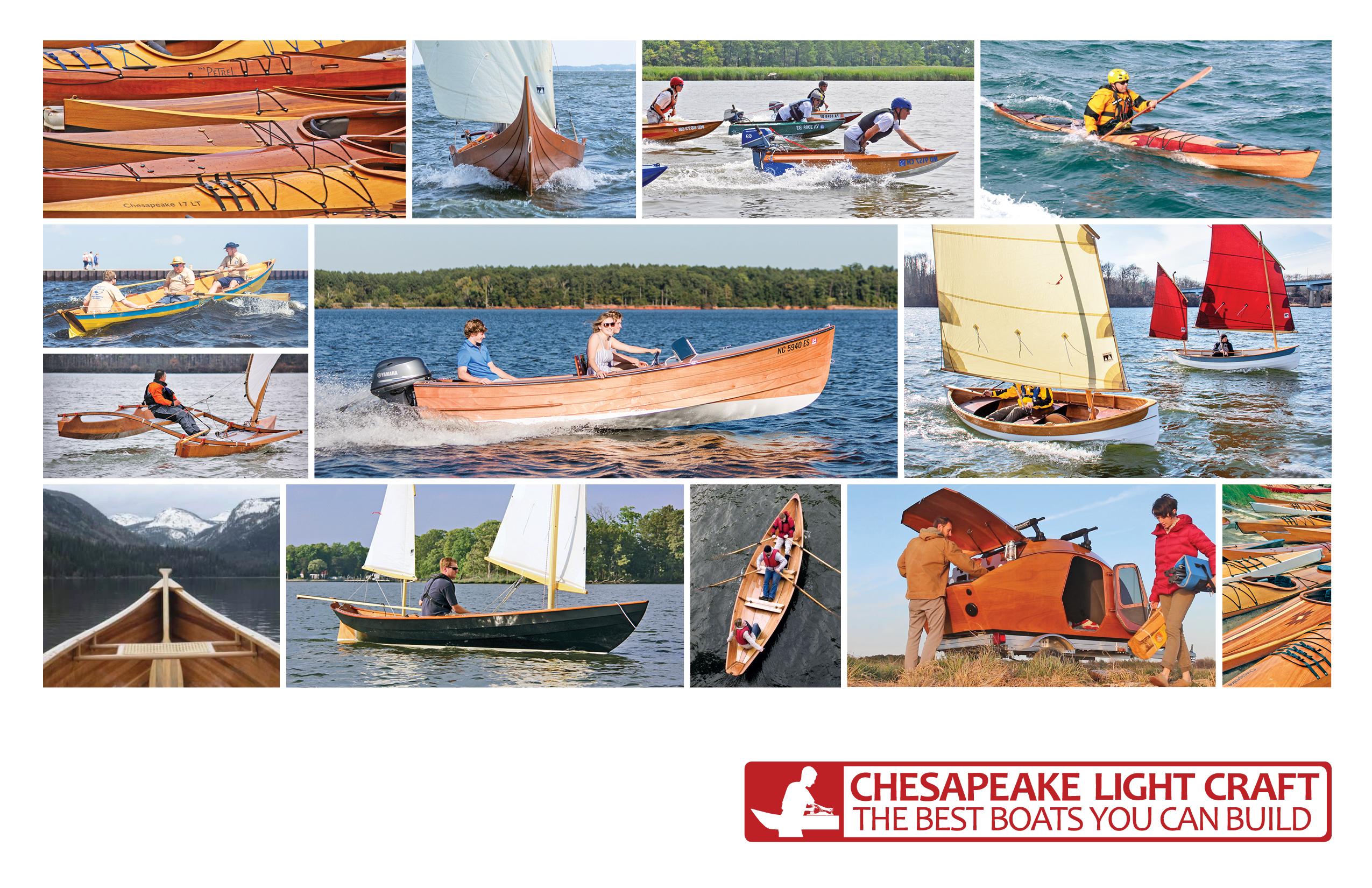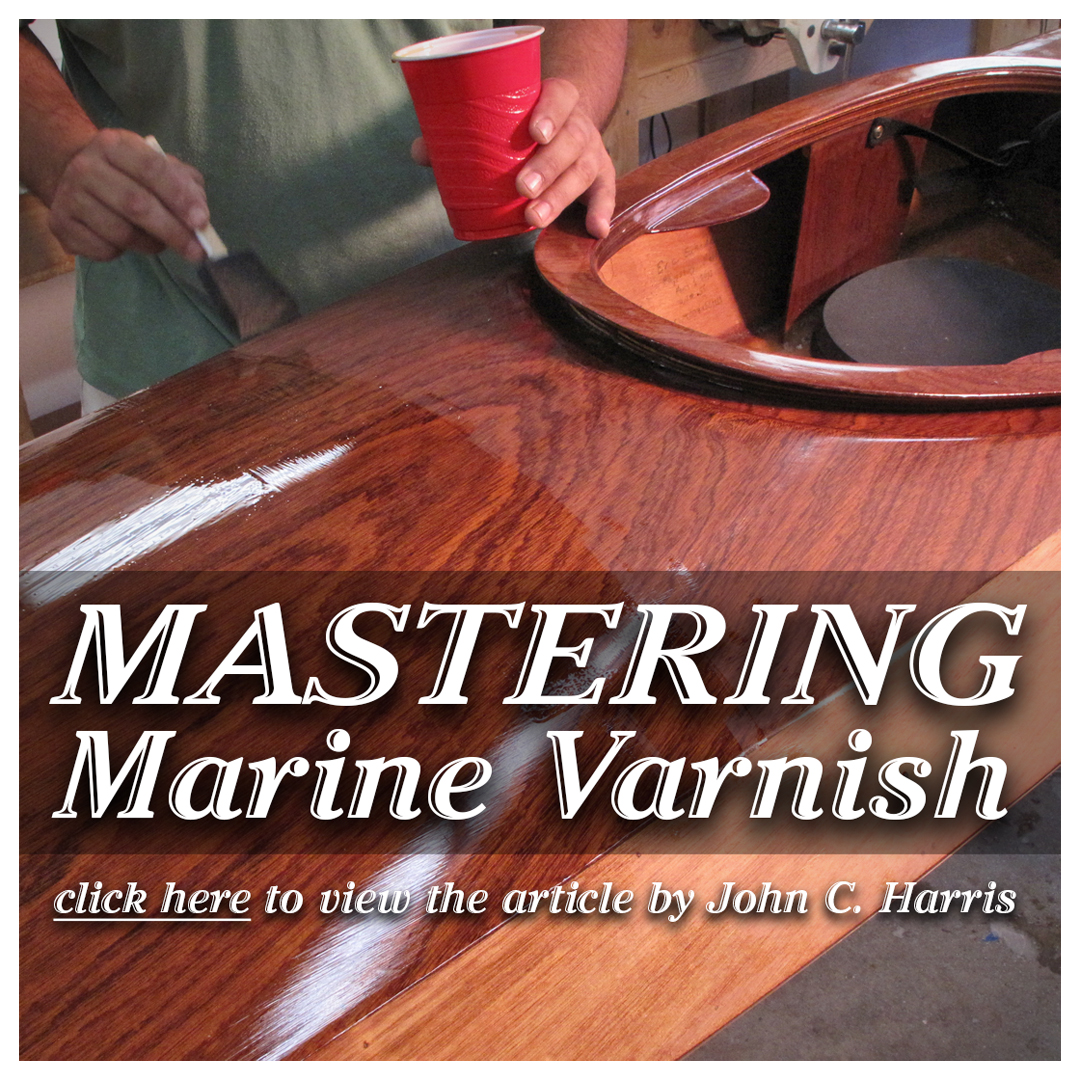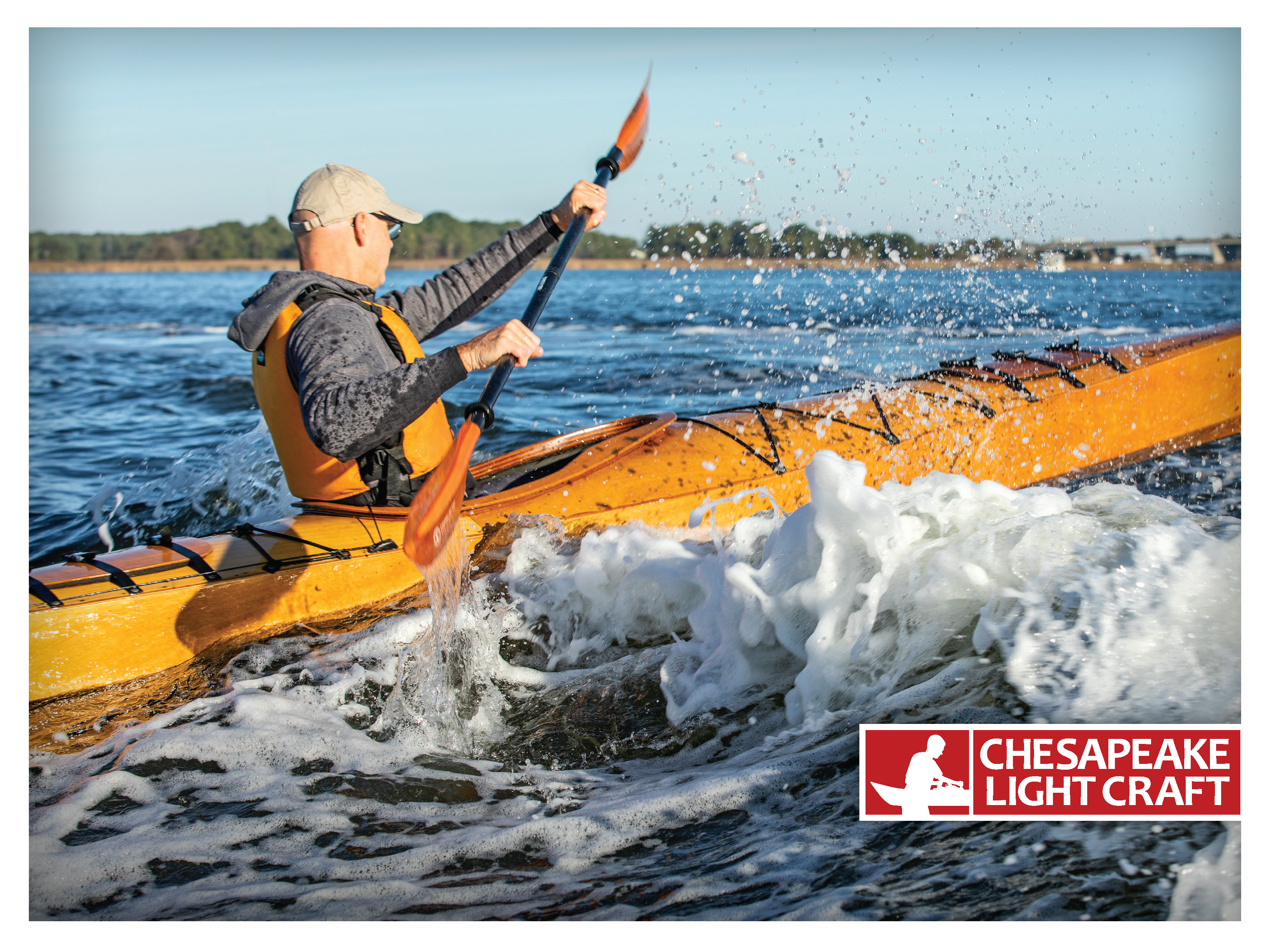Builders' Forum |
|
| ↓ Scroll to Last Comment ↓ | Forum Guidelines | Builders' Forum | |
Self taught sailing advice wanted
I'm about to start a Skerry and I'm excited about sailing her, except I don't really know how. I sailed an 8 ft. pram a couple of times when I was a kid, but that's about it. There are no yacht clubs around and I don't know anyone who can teach me. I'm looking for advice on how to teach myself. Can it be done?
22 replies:
RE: Self taught sailing advice wanted
Well, there're always books. You might start with The Annapolis Book of Seamanship, currently in it's 4th edition, I believe, but an older one might suit just as well. See if your local library has it and give it a look. Heck, if my library here in Landlubber City (Columbus, Ohio) has it, it must be fairly ubiquitious. Mind you, you don't have to read the whole thing at one go, just the sections on basic sailing stuff, especially the pictures and illustrations. He (John Rousmaniere) made some videos, as well.
.....Michael
RE: Self taught sailing advice wanted
BBT from your other posts it’s obvious you’re good at DIY stuff, and familiar enough with watercraft to be ready to add wind power to your skillset. What’s posted above is good advice: safety first, try to avoid situations you’re unprepard to work out a solution for that might prove dangerous.
All I can add is maybe look for other sails out on the waters you want to explore! If they’re out there you won’t be alone!
RE: Self taught sailing advice wanted
You might be surprised. There may not be a "yacht club" but "sailing clubs" are all over the place. If you will be taking your skerry to a body of water big enough to sail, chances are there are more than a couple of people who get together as a "club" there. Heck, even in land locked West Texas where my wife came from, there are sailing clubs on one or more of the reservoirs.
In my view, one of the things to learn first is to be able to tell where the wind is coming from. You can practice that just standing on ground. Close your eyes and rotate until you feel the breeze on your face and hear/feel equal wind noise in each ear. Open your eyes and see if you have it right, based on a flag, wind sock, or just grass tossed up in the air. Its amazing how many people try saling without having a sense of where the breeze is coming from.
Once you are nose into the wind, hold both arms out straight. those are your beam reaches. Rotate until one hand is pointing in the direction of the wind. Now you'll hear different noise in each ear, and if the breeze is up, you can feel on your cheek and neck how a beam reach will feel. Sounds kind of dumb, but if you are confident you can find the wind while sorting all the mechanical bits of sailing, you can keep moving and make it go in a direction you determine. If you can't find the wind, you don't go or just go in circles.
Then go get one or more sailing books from the library and look at the basics. There are ones, many British, that focus on small boats, which is preferred, as keel boats have somewhat different behaviors. Rousmaniere is a great yachting writer and expert but tends to jump fast toward keelboats. I think a good standard first book is "Learning to Sail: The Annapolis Sailing School Guide for All Ages". It has all the basics. Gary Jobson has some good ones also.
RE: Self taught sailing advice wanted
Too, there’s a bunch of stuff on-line you can bring up to get a basic understanding of what’s involved. Google (or other search engines if you prefer) <learning to sail small boat> like I just did & you’ll see what I mean.
Basics don’t change much though scale can overwhelm a beginner if you start over your head. My first sailboat was a 14’ stripper yawl-rigged scow I built from plans published by Popular Science magazine in 1972. Weighed too much, materials choices doomed it to rot in ten years but it was fun, while it lasted! Had a couple of buddies who taught me lots so in that regard I was most fortunate. Got blown over more’n once, looking forward to my 2nd sail’craft’ awaiting a’building now... a Waterlust canoe.
RE: Self taught sailing advice wanted
Oops... got ahead of myself in that last post; scow carried a sloop rig, not a yawl.
(Sure wish this forum allowed post editing....)
RE: Self taught sailing advice wanted
Royce's Sailing Illustrated is one of my favorite "How-to" books on sailing. I found my copy at a second-hand book store and have just about worn it out. However, no amount of reading will replace just going out and having fun.
RE: Self taught sailing advice wanted
You want your sail slicing into the wind the way an airplane wing slices through the air. Unless you are going straight downwind, think of the sail slicing -- not of the wind pushing against the sail.
You might watch some YouTube video clips about how to read and use the tell-tails on your sail.
RE: Self taught sailing advice wanted
My favorite: The Complete Sailor, David Seidman. Maybe it should be your second book as he assumes you already know some of the basic terminology.
https://www.amazon.com/Complete-Sailor-Second-David-Seidman-ebook/dp/B004H4XL10/ref=dp_kinw_strp_1
Hooper
RE: Self taught sailing advice wanted
I'm actually a sailing instructor, so take this for what it's worth. There's a big difference between sailing and sailing well. If it's just you on a day with 10 knots of wind or less, in protected waters, you can just putter around and experiment with sail trim, angles of attack, rudder position, etc. Obviously, knowing the fundamentals will facilitate things. BTW, I prefer the Annapolis Seamanship book over Chapman's.
Some things to think about: the sail keeps an almost constant angle to the wind while going both upwind and downwind, the boat actually rotates beneath the sail independently. Going upwind, the sail is like a wing, downwind, like a parachute.
Another helpful thing to remember is "Tiller Towards Trouble". If you want to steer away from the shore, push your tiller toward it and the boat will turn the other way. If you're sailing downwind and your sail starts to collapse, push your tiller toward the sail.
Do a lot of turning and figure 8's if possible. Always look forward. Lots of beginners keep looking backwards at the tiller to figure it out, this confuses their inner ear and messes with muscle memory. Keep looking forward while doing your turns and will reinforce your muscle memory.
On dinghies, I never cleat the mainsheet. Keep it in your hand so you can dump the wind in the sail instantly if needed. Beginners often get surprised by puffs until they learn to read the wind on the water. Other boats wakes can also rock the boat, necessitating instant depowering to calm the situation down for a minute. It's also a great way to judge the power of the wind/sail on the boat, because you're actually feeling it in your hand.
RE: Self taught sailing advice wanted
Do any of you carry a gps to check your speed? I'm thinking it would help me find the best sail trim, weight distribution, etc. I'm reading the Patrick O'brian books right now (again!) It's interesting to me how Jack Aubrey is always tinkering with things to try and coax a bit more speed out of his ships.
RE: Self taught sailing advice wanted
Do any of you carry a gps to check your speed? I'm thinking it would help me find the best sail trim, weight distribution, etc. I'm reading the Patrick O'brian books right now (again!) It's interesting to me how Jack Aubrey is always tinkering with things to try and coax a bit more speed out of his ships.
RE: Self taught sailing advice wanted
Confucious says "Do not use cannon to kill mosquito." Seriously though, GPS could provide some valuable info, but I think that would take you away from the visceral experience of feeling the boat speed. You can compare relative boat speeds with analog means by how far aft the bow wave is and what the wake looks like (bubbles, vs. no bubbles, etc.).
There are various speeds that you'll eventually get to know (e.g. over ground, made good, true vs. apparent, etc.). Some do require space-age tech, and some just require whiskers...
RE: Self taught sailing advice wanted
What Capt Skully said about whiskers! On a little boat like a skerry, the feel of breeze on a cheek (or the bald top of my head) will tell you more than electronics. Listen to the boat's progress through the water, watch the wake, look ahead to find a sighting mark on the shore and learn how to keep track of which way you are set by current by watching which way crab pots stream or the flow of water around a day mark pole. We sail in a competitive Wednesday night series on a 40 year old boat using compasses and a watch, and are always in the hunt. A streamer at the top of the yard or mast can help with wind direction.
RE: Self taught sailing advice wanted
I forgot about trees! One thing I still do is to try and clear a buoy on the upwind side without touching. You can judge if you're on the right track by watching if the trees in the background stay in line or gradually drift off to the side. You then sheet in and head up until you stall. That will tell you how high you can point. My buddy in TX called it "losing trees". The classic red pennant at the top of the yard will help with wind direction and also tells you if you've stalled your sail. Slightly less effective than yarn on the sail or shrouds but looks a bit better.
RE: Self taught sailing advice wanted
What CS said about dinghies (“On dinghies, I never cleat the mainsheet”) holds true for sailing canoes too!
Never heard that TTT aphorism, but will remember it going forward! And that sail angle-to-wind... it’s a foil, after all.
RE: Self taught sailing advice wanted
My further thoughts, having read later posts:
I'll agree with Hooper that David Seidman's book is a good one. Having been reminded of it above, I do now remember going through it once upon a time (don't actually own it) and thinking the illustrations and explanations were pretty good. Also, it seems a good fit for a "traditional" boat sailor.
GPS? Well, okay, it is a sho'n'uff handheld modern miracle, I'll admit. I mean, Christopher Columbus probably would have killed half a dozen people, maybe some of 'em kin, just to be able to get his longitude within a degree or so, no matter how much pencil scratchin' it took to work it out. To be able to press a button on a device held in one's hand and have instant latitude and longitude accurate within feet displayed? In the words of that elderly monk in those old Xerox commercials: "It's a Miracle!"
However, it can also be a Tool of the Devil if'n you ain't real careful. First of all, it is right up there with the dressing table mirror and the bathroom scale in terms of being a device which makes no concession to human vanity. That can be a good thing sometimes ("pride commeth before a fall..."), but you really don't need that kind of discouragement when you are just starting out. The boat will tell you when she's happy once you get your eyes, ears, hands, and the seat of your pants trained to listen to her. Fooling with a GPS unit may add to your frustration by taking away from the simple pleasure of messing about in boats. Sailing is fun. Don't let the devil steal your joy.
Second, you might be so tempted to get all hung up with fiddling with the buttons, trying to figure out how to use waypoints, and other such distractions, that you won't be concentrating on feeling the wind, paying attention your sail trim, and steering a steady course so your wake doesn't look like there is drunken baboon at the helm. Good sailing is mostly about feel, and you're not likely to develop that by looking at a screen.
Third, when you've got the tiller in one hand, the mainsheet in the other, and your other hand is switching between pushing up your sunglasses, scratching your nose, and trying to get a drink of water...oh...wait...you're already a hand short. Maybe adding something like a GPS which requires yet another hand, not to mention needing to learn how to make one of your eyes watch it while the other eye watches everything else, might be a bit too much of a juggling act, even for an experienced sailor, never mind if you're just learning to sail. It's already something of a juggling act to begin with, so it's best not to make the learning curve any steeper by adding more stuff to juggle.
Not that a GPS can't be useful for helping you figure out what works best in different situations, but I'd want two things before going there: (1) enough experience to get the feel of things so that adjusting sail trim, steering, and reacting to wind and wave are pretty much automatic, and (2) a crewman along to concentrate on working the GPS and letting me know when something either helped or hurt our speed, weatherliness, or whatever else you're trying to tweak. I have used my simple handheld GPS occasionally when sailing alone in our PMD, but it's been mostly about checking our speed once in a while to help me get the hang of estimating speed based on sound, sight, and feel so that at some point I'll be able to tell pretty well how we're doing without having to fool with the GPS. The odometer page is also useful when I'm going any distance, mostly to help me keep track of how far we've gone and to give me some indication of our average speed made, but that doesn't need me looking at it all the time.
Your biggest hurdle in learning to sail will be simply making time to get out on the water. Turn the GPS off (or leave it ashore), relax, have fun, and pay attention to what your boat is telling you. You'll soon be sliding down your learning curve like a kid on a hot waxed slide. <;-)
.....Michael S., aka Gramps
RE: Self taught sailing advice wanted
I need to learn to sail also, building a dory, .one thing that was missed here is learning how to self rescue,how to right the boat and get back in, thats one of the first things i plan to figure out
RE: Self taught sailing advice wanted
Hey Greg,
While it's true that you will need to do some righting practice, I'm not sure it's the first thing I'd worry about. First, that's the reason why we're suggesting learning in protected waters under 10 knots, so there's almost no chance of capsizing/broaching/swamping the boat. Second, I highly suggest righting practice/self rescue be done in protected WARM water. It's going to be several months before any local waters get warm and that shouldn't cause you to put off sailing.
Self rescue can be a frustrating and exhausting process until you find the tricks that work for you and your boat. You don't want to add hypothermia to the mix. If possible, you also want to be able to practice for the first time in water shallow enough that you can stand in it, but still deep enough to capsize the boat. Later, you can have the fun of swimming around to uncleat the main sheet (cleating the mainsheet is not recommended on dinghies), turning the capsized boat 45° into the wind, standing on the daggerboard, etc.
In the past, especially when I owned Hobie cats, I turned righting practice into an annual event. We made it a fun day in the heat of summer with the express intent of capsizing on purpose and practicing righting about 10 times. When approached with the proper attitude, it was fun but very exhausting. At the end, we would just take a quick spin around the lake and head back to the launch, done for the day.
RE: Self taught sailing advice wanted
KISS............Keep those first trips simple. No extra gear. No GPS. No phone laying on the deck. No camping gear. The Idea is you and the boat getting orientated. Don't complicate it with stuff that can go skittering away or floating away. You've got to develop a sense for the boat and what its doing. The rest is distractions.
RE: Self taught sailing advice wanted
Thanks to everyone for the input. I find all of it to be helpful. I asked about the gps because I already have one that I bought for long distance bike trips. It was very useful, although I still brought maps and used both methods to navigate. I plan on sailing seat-of-the-pants at first, but I still think it might be fun to bring the gps to see f it reveals anything. I plan on capsizing (in shallow, warm water) to learn how to right it and bail it out. When I built my Chesapeake 17 one of the first things I did was fall out and learn to self-rescue - not so easy in a tippy kayak. I never launched without my paddle float and pump. (I never learned the Eskimo roll.) When I paddled to Catalina Island the group leader wouldn't allow us to go unless we had demonstrated we could self-rescue. I didn't need it on that trip, but on another group paddle I let my attention wander and found myself capsized in choppy, cold water, far offshore. Because I had practiced there was no panic. Pop the spray skirt, slide out of the cockpit (while underwater), retrieve and inflate the paddle float, slip it on one end of the paddle, stick the other end into the rigging behind the cockpit, climb back in, pump out the water, continue on my way. If I hadn't practiced it might not have gone so smoothly.
RE: Self taught sailing advice wanted
Im a kayaker too ,thats why the first thing i think about is capsize recovery.i'll be needing to learn to sail my self soon.













RE: Self taught sailing advice wanted
» Submitted by Laszlo - Sun, 2/18/18 » 7:28 AM
Sailing advice - keep the rudder in back, the mast pointing up and the water outside and you'll be fine :-)
Seriously, I also got my start in an 8-ft pram and when I got into a Skerry for the first time ever it felt like home. After a couple of minutes of getting acquainted we had made friends and it did everything I asked it to.
So, yes, it can definitely be done. The Skerry is a very easy boat to sail, with no surprises. Start out in a light wind and pay attention to what the boat is telling you and you'll be sailing again in a very short time.
I also recommend that you have oars in case the wind fails, a short paddle in case you get stuck in irons and for the first few times try for a muddy, not rocky, bottom in case you run aground. Wear your PFD and get a weather report before going out.
Have fun,
Laszlo